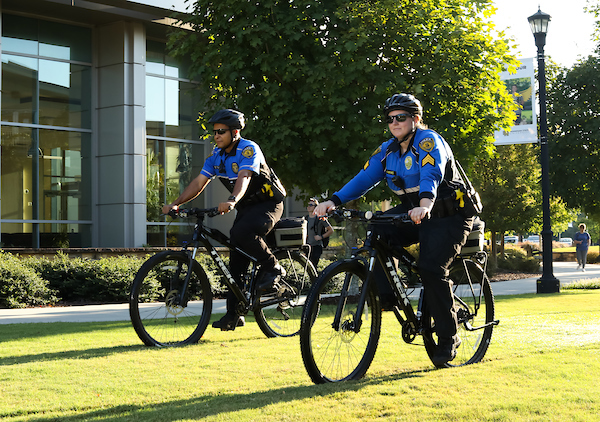Criminal Justice
Learn More About Criminal Justice
Admission Requirements
None.
This program does not have specific admission requirements. Only admission to Kennesaw State University is required to declare this major.
Related Minors or Certificates Available
- Criminal Justice Minor
- Criminology Minor
Sample Classes
-
CRJU 3300: Criminal Courts
This course examines the history, development, structure, operation, and organization of criminal court systems in federal and state courts in the U.S. Topic areas include the roles of major professional and non-professional courtroom participants, stages in the process of adjudication of criminal cases from initial charging through post-conviction review, and an introduction to the constitutional rights of the accused.
-
CRJU 3355: Race, Crime, and Justice
This course provides an in-depth examination into racial and ethnic issues related to crime and justice in America. The course explores how racial stratification and inequalities influence crime and victimization and official responses to crime. Topic areas may include disparities in criminal justice enforcement, minority representation in the criminal justice system, and strategies for addressing discrimination across criminal justice policies and practices.
-
CRJU 4305: Technology and Cyber Crime
This course provides an overview of cyber crime and computer-related crime issues facing the American criminal justice system, particularly law enforcement. Topic areas include prevalence and types of cyber crime, cyber crime victim and offender characteristics, and methods and types of technologies used to engage in cyber crime. Emphasis is placed on the criminal justice system’s investigation and response to cyber crime. Future trends of cyber crime and computer-related crime are also discussed.
-
CRJU 4410: Criminal Profiling and Analysis
This course centers on the deductive criminal profiling method, the analysis process of forensic evidence, and the development of offender characteristics from behavioral evidence analysis. An overview of the socio-legal aspects involving profiling and analysis of specific profiling issues in different types of serial crime are addressed. Students examine an actual cold homicide and prepare a threshold assessment of the case.












